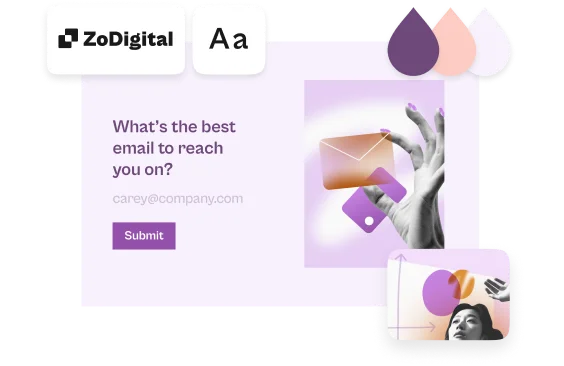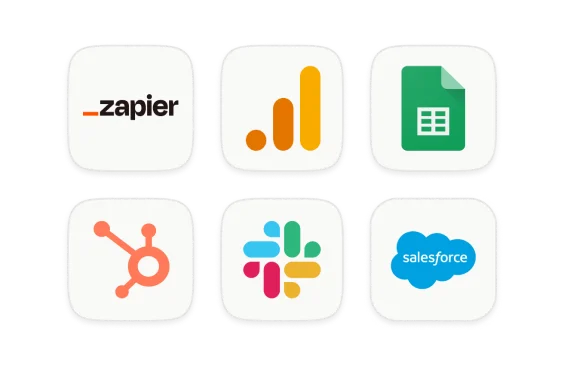How Typeform uses forms for remote employee onboarding
Typeform currently has a completely remote employee onboarding process. To make this a bit more human, our Employee Engagement Specialists, Kasia and Pep, decided to use typeforms and videoasks to introduce newbies to Typeform.
Newbies get to watch videoasks about their future colleagues, and in return, everyone at the company gets an email with videoasks introducing our newbies. As Typeform is a quickly growing company, this can be really useful for putting faces to the names of our new colleagues.
The process is as follows:
- Newbies get an email with a form that introduces them to our mission and values.
- This form also contains their first challenge, where they have to record an intro video about themselves with VideoAsk.
- Another form in the email introduces them to people who work at Typeform, so the new joiners can get to know our team a bit.
- After the newbies submit their VideoAsk intros, Typeformers get to see these videos before their colleagues’ first day at the company.
The Logic in these forms is pretty similar. They’re all using Logic and Branching and calculations to let people explore different paths from the same Multiple Choice question.
Here’s a detailed rundown of how Kasia and Pep built the form that introduces the company:
1. First, they added a Welcome Screen that greets each newbie by their name.
2. To do this, they added a name Hidden Field, and they recalled it by typing @ after “Hi” on the Welcome Screen.
When the Hidden Field is populated in the form URL, newbies will see their name in the email they receive and on the Welcome Screen of the form. Check out this article about our Mailchimp integration to see how this works.
3. Then they added a Multiple Choice question. People will be able to go through the options in their preferred order, and they will be taken back to the first question with Logic.
4. Then they added their Statements. Each Statement is linked to an answer option in the first Multiple Choice question.
5. When people select an option, they’ll be taken to the corresponding Statement:
6. When they hit Enter on a Statement, they’ll be taken back to the first Multiple Choice question:
7. This way they can get to learn more about Typeform following their own path.
8. They’ll see the videoasks where Typeformers talk about what each Typeform value means to them:
9. This also lets them get to know the faces of some of their future colleagues...
10. ...hear some of their stories...
11. ...and learn about some of the challenges they faced.
12. Then, a Statement question explains what newbies should expect from their first day at work and the onboarding process...
13. ...and from the company.
14. The last Statement is an important one because it contains the newbies’ first challenge, presented by David, the founder of VideoAsk:
15. Finally, the Ending Screen reminds people of the challenge.
Now it’s time to set up our Logic! Here’s how Kasia and Pep used Logic and Branching, segmentation and calculations for this form:
1. First, they added Logic to all the answer choices in the Multiple Choice questions. This way people will be taken to the Statement that corresponds to the option they selected:
2. Next, they made sure that people couldn't miss any of the Statements by adding Logic that takes them back to the first Multiple Choice question after answering each Statement.
3. Then to the last company value.
4. This way people can choose the path they want to follow, and read the company’s story in their preferred order.
That’s it! All the Logic is now set in the welcome form.
Newbies will then see this form about people who work at Typeform. The Logic in this form is similar to the previous example:
Finally, after they receive the intro videoasks from the newbies, Kasia and Pep will embed them in a form and send it to everyone in the company:
Now that’s what I call a remote onboarding process where every interaction counts!
After completing their first challenge and learning about the company, newbies also get to fill out a fun quiz to see what they learned. You can read how Kasia and Pep created that quiz here.


